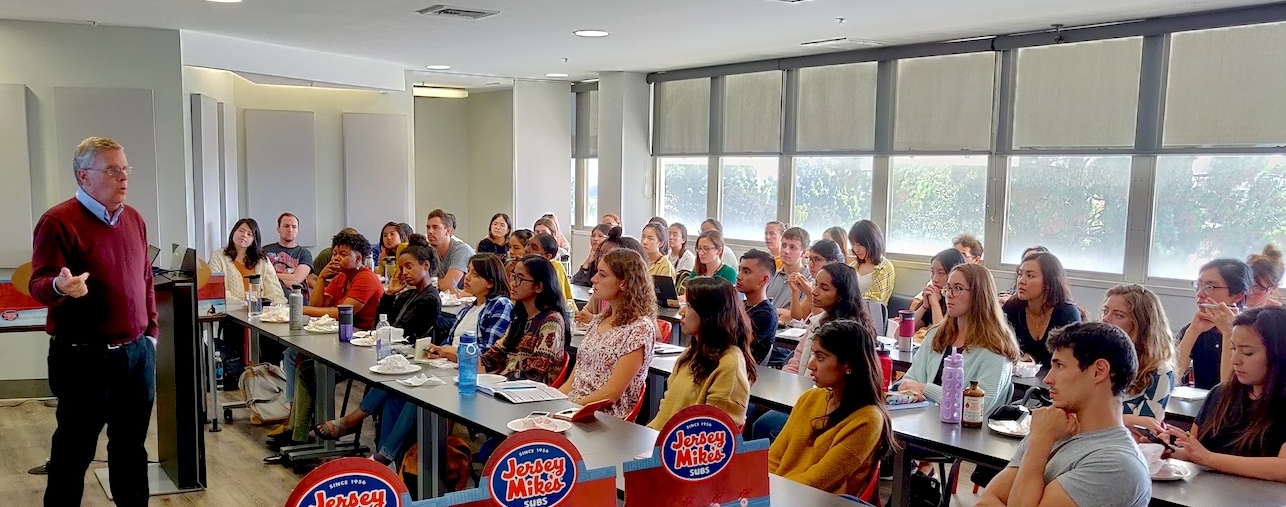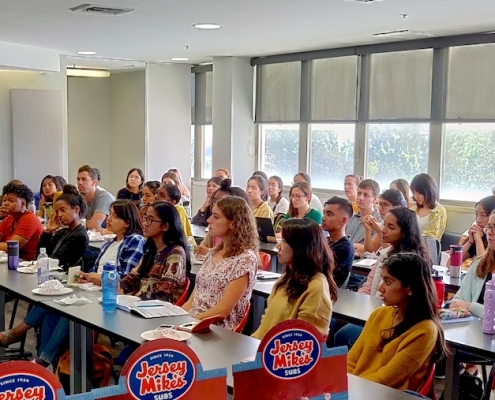I am an economic geographer and my research is about the geography of economic development. The world economy entered a new period around 1980, characterized by the main forces of technological change and globalization. In this New Economy (now growing old), many patterns of economic development changed: the economy became more urban; people began returning to the inner parts of metropolitan areas; regional inequality increased in most countries; some regions gained in income and employment, others lost people or had declines in their economic success; inequalities between persons increased in many countries; successful people migrated to certain regions and left others; a major wave of globalization occurred, increasing the economic specialization of city-regions all over the world; this made some regions very multi-cultural, but not all; some city-regions were successful in this new economy, and others declined; development spread around the globe.
The economics of these inter-related changes are my main subject. In my different research projects, I address aspects of this big picture.
In one major recent project, I examined why cities and metropolitan regions grow and decline. My latest big project on this subject was published in 2015 in a book entitled The Rise and Fall of Urban Economies: Lessons from San Francisco and Los Angeles (Stanford University Press). I also published a closely-related theory book on how to understand divergent regional and urban development: Keys to the City (Princeton University Press, 2013).
New technologies have altered the nature of employment and its geography radically in the past few decades: what kind of work we do, who does it, where it is done. This is a principal reason for the changing geography of economic well-being. There are winner and loser people and regions in this ongoing tumultuous change in our economies. The next wave of technological change will most likely be even more tumultuous, and it will reshuffle the cards of economic development once again.
The changes I have examined are now giving rise to very strong political reactions, in debates over trade and employment. Much of this comes from the strong geographical differences in development I have studied over the years, with certain regions picking a return to national border and a rejection of globalization and multiculturalism, and others endorsing its continuation. The split in development between successful and unsuccessful places makes it more urgent than ever to understand what can be done to spread prosperity to more places and more groups of people, and yet to continue the success of the places that are doing well. This is a thorny problem for research and policy. My research in the next few years will concentrate on the sources of unequal regional development and to understanding the politics and policy debates it generates.
—-
Beyond his core disciplinary skills in economic geography, his work on occasion draws on, and has links to, economics, sociology. and urban studies. Storper holds concurrent appointments in Europe, where he is Professor of Economic Sociology at the Institute of Political Studies (“Sciences Po”) in Paris, and a member of its research Center for the Sociology of Organizations (CS0), and at the London School of Economics, where he is Professor of Economic Geography.
Storper is currently completing a five-year research project on the divergent economic development of the Los Angeles and San Francisco Bay Area economies since 1970, which is the subject of his next book “The Rise and Fall of Urban Economies: Lessons from San Francisco and Los Angeles.” SFGate calls it “a must-read for anyone who cares about the future of California and cities more broadly.”
His Op-Ed Why San Francisco’s way of doing business beat Los Angeles’ was featured in the Los Angeles Times.
Storper received an Honorary Doctorate from the University of Utrecht in the Netherlands in 2008. He was elected to the British Academy in 2012 and received the Regional Studies Association’s award for overall achievement as well as the Sir Peter Hall Award in the House of Commons in 2012.
In 2014 Storper was named one of the “World’s Most Influential Scientific Minds” by Thomson Reuters.
RESEARCH AND BIOGRAPHICAL LINKS
Amazon Author Page
ResearchGate
SELECTED BOOKS & PUBLICATIONS
The Economic Development Clubs of European Cities
Author: Michael Storper
Download file: PDF
The Neo-liberal City as Idea and Reality
Author: Michael Storper
Download file: PDF
Regional Innovation Transitions
Author: Michael Storper
Download file: PDF
Current debates in urban theory: A critical assessment
Author: Michael Storper and Allen J Scott
Download file: PDF
RGS acceptance speech
Author: Michael Stroper
Download file: PDF
Economic Growth and Economic Development: Gepgraphic Dimensions, Definitions & Disparities
Author: Maryann Feldman and Michael Storper
Download file: PDF
The digital skin of cities: urban theory and research inthe age of the sensored and metered city, ubiquitouscomputing and big data
Author: Chirag Rabari and Michel Storper
Download file: PDF
The Rise and Decline of Urban Economies: Lessons from Los Angeles and San Francisco
Author: Michael Storper, Tom Kemeny, Naji Makarem and Taner Osman
Publisher: Stanford University Press, August 2015
Cohesion Policy in the European Union: Growth, Geography, Institutions
Author: Michael Storper, Thomas Farole, Andres Rodriguez-Pose
Download file: PDF
Governing the Large Metropolis
Author: Michael Storper
Download file: PDF
Is Specialization Good for Regional Economic Development?
Author: Michael Storper, Thomas Kemeny
Download file: PDF
The Nature of Cities: The Scope and Limits of Urban Theory
Author: Michael Storper, Allen J. Scott
Download file: PDF
Keys to the City: How economics, institutions, social interactions and politics affect regional development
2013 (June). Princeton: Princeton University Press
Q&A
Speech accepting the Sir Peter Hall Award in the House of Commons, 2012
Download file: PDF
Book Review, Glaeser’s Triumph of the City
Author: Michael Storper
Journal of Economic Geography
Rising Trade Costs? Agglomeration and trade with endogenous transaction costs
2008. co- authored with Gilles Duranton. Canadian Journal of Economics 41,1: 292-319
Rethinking Human Capital, Creativity, and Urban Growth
2009 Co-authored with Allen J. Scott, Journal of Economic Geography :147-167, January
Why Does a City Grow? Specialization, Human Capital, or Institutions?
2010 Michael Storper, Urban Studies v.47, 10: 2027-2050
Download file: PDF
Cohesion Policy in the European Union: Growth, Geography, Institutions
2011 TC Farole, A Rodriguez Pose, M. Storper, Journal of Common Market Studies 49,5: 1089-1111
Should Places Help One Another? Justice, Efficiency and Economic Geography
Author: Michael Storper. 2011 European Urban and Regional Studies 18,1: 3-21
The Sources of Urban Development: Wages, Housing and Amenity Gaps across American Cities
2012 Tom Kemeny and Michael Storper, Journal of Regional Science 52,1: 85-108
The Territorial Dynamics of Innovation in China and India
2012 Journal of Economic Geography, 12: 105-1085 (with Riccardo Crescenzi and Andres Rodriguez-Pose).





